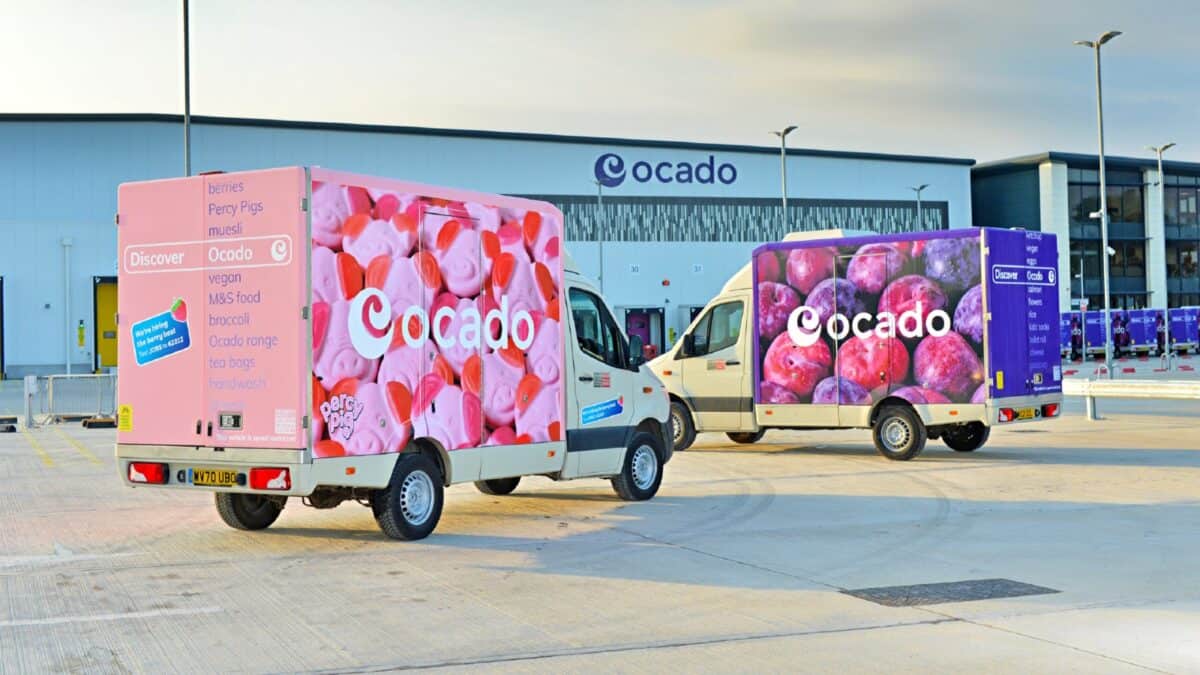The biggest riser early this morning (2 November) among FTSE 100 shares was Ocado (LSE: OCDO). But while its share price jumped around 9% in early trading, it is still 20% below where it started this year. In five years, the shares have lost 39% of their value.
Could things get better from here – or are the shares doomed to keep losing value?
Is business getting better or worse?
I think the answer to that question largely turns on how well Ocado can prove its business model.
That is a harder task than it may sound. Take the past three years as an example. Ocado has grown revenue each year. But it has also recorded a loss each year. That loss grew in each of the past two years. Last year, the post-tax loss was £481m, over a 10th of the firm’s current market capitalisation.
Many growth companies lose money as they try to gain scale. Could that be what is happening here?
It may be. Ocado has been on the go for several decades but is aggressively trying to increase the customer base for its automated warehouse and digital ordering services. Unlike its consumer business, that service business effectively involves retailers outsourcing parts of their online operation to Ocado.
There are big upfront capital costs, but long-term contracts could help Ocado make revenue from such deals for decades to come. For now though, the business remains heavily loss-making.
How to assess the investment case
Ultimately, I see limited value in Ocado’s own UK consumer operation. It does have almost a million customers, but online grocery shopping in the UK is a crowded and brutally competitive market. Whatever Ocado’s UK business may be worth, I think it is far below the whole company’s current £4.3bn market capitalisation.
The big prize that I think could drive the Ocado share price in either direction is how the outsourcing business develops. Can it turn heavy losses into juicy profits at some point?
So far, I am not convinced. Building the infrastructure necessary to service such contracts has been costly. Ocado has racked up massive losses and repeatedly diluted its shareholders in recent years. This year, the first half alone saw pre-tax losses balloon 37% to £290m. At that rate, further dilution is a risk.
I think that whether the Ocado share price moves up or down in the long term will depend on how well the company proves its outsourcing offering can make profits.
Challenging times ahead
So far it has not done that, in my opinion.
With the economy struggling in many markets, I see a risk that retailers may not want to spend money on big new projects and instead try to cut costs. Ocado could be in a corner where it either needs to scale back its expansion plans, or accept less favourable commercial terms.
At some point, if it cannot prove its business model, I think the Ocado share price could fall to reflect only the value of its UK retail operation and its proprietary technology. That is not zero, but I think it is far below £4.3bn. I will not be touching the shares with a bargepole.








